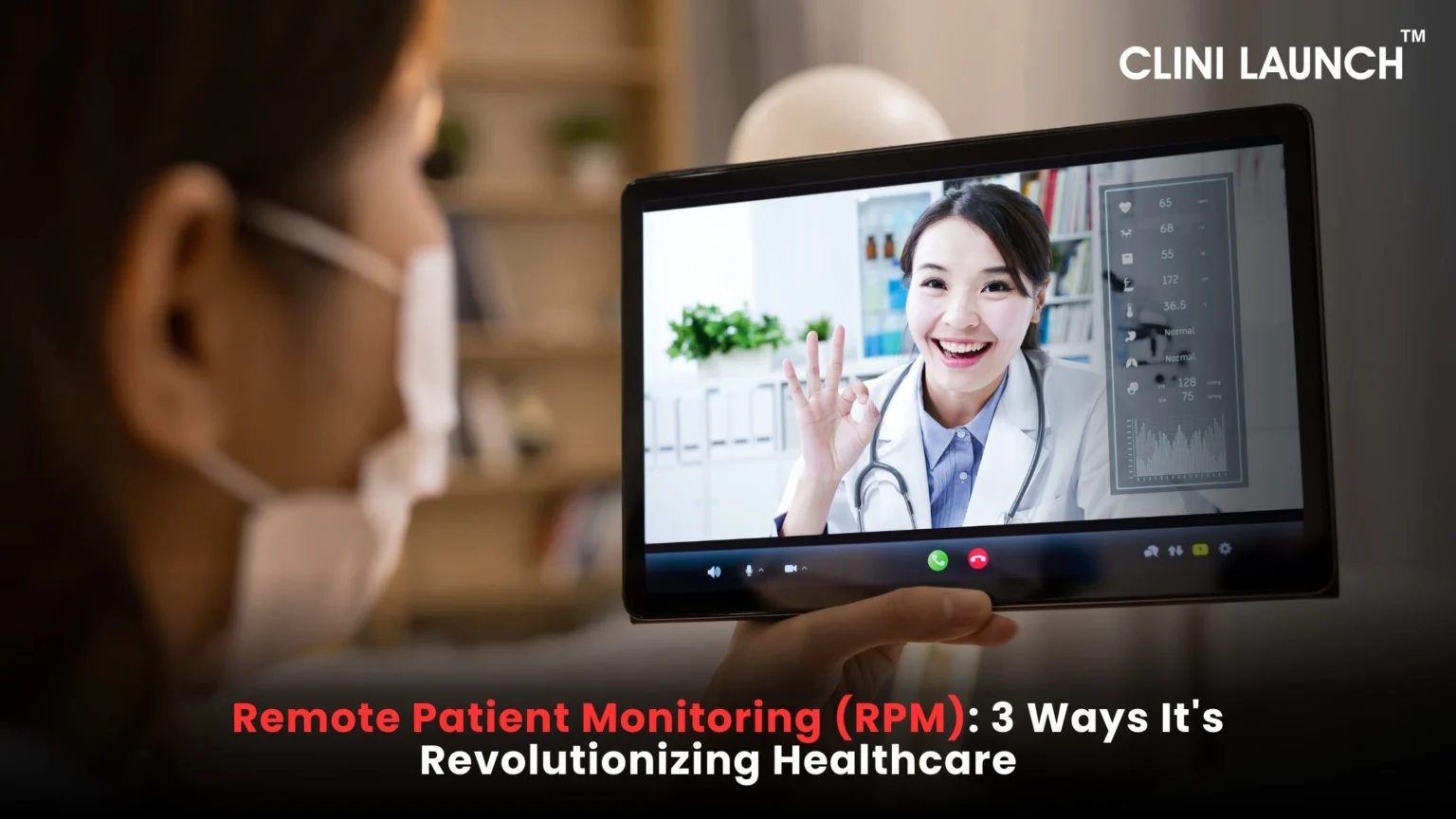AI in Healthcare: Shaping the Future of Clinical Practice

Strong 8k brings an ultra-HD IPTV experience to your living room and your pocket.
Artificial intelligence (AI) is no longer a futuristic fantasy in healthcare; it has firmly established itself as a transformative force, poised to revolutionize clinical practice as we know it. From accelerating drug discovery to enhancing diagnostic accuracy and personalizing treatment plans, AI's potential to reshape the healthcare landscape is immense. For the Clini Launch Research Institute, dedicated to advancing clinical research and improving patient outcomes, understanding and embracing the integration of AI is not just an option – it's a necessity to remain at the forefront of medical innovation. This article delves into the current applications of AI in healthcare and explores its profound implications for the future of clinical practice.
The Dawn of Intelligent Healthcare
The healthcare industry generates vast amounts of complex data, including medical images, electronic health records (EHRs), genomic information, and real-time patient monitoring data. Traditionally, the analysis of this data has been time-consuming and often limited by human capacity. AI, with its ability to process and interpret massive datasets at remarkable speeds, offers a powerful solution. By identifying patterns, predicting outcomes, and extracting valuable insights, AI is empowering clinicians to make more informed decisions, leading to improved patient care and operational efficiency.
Current Applications of AI in Clinical Practice
AI is already making significant strides across various aspects of clinical practice:
Enhanced Diagnostics: AI algorithms demonstrate remarkable accuracy in analyzing medical images such as X-rays, CT scans, MRIs, and retinal images to detect diseases like cancer, diabetic retinopathy, and neurological disorders. For instance, AI-powered tools can identify subtle anomalies that might be missed by the human eye, leading to earlier and more precise diagnoses. This is particularly crucial in fields like radiology and pathology, where the volume of images can be overwhelming.
Drug Discovery and Development: The process of discovering and developing new drugs is traditionally lengthy and expensive. AI is accelerating this process by analyzing vast databases of biological and chemical information to identify potential drug candidates, predict their efficacy and toxicity, and optimize clinical trial design. Machine learning algorithms can also predict patient responses to different treatments, paving the way for more targeted drug development.
Personalized Medicine: Recognizing that each patient is unique, AI is enabling the development of personalized treatment plans based on an individual's genetic makeup, lifestyle, and medical history. By analyzing this multifaceted data, AI algorithms can predict a patient's risk of developing certain diseases, determine the most effective treatment options, and monitor their response in real-time, allowing for adjustments as needed.
Robotic Surgery and Assistance: AI-powered robots are assisting surgeons in performing complex procedures with greater precision, minimally invasive techniques, and enhanced dexterity. These robots can provide surgeons with a 3D view of the surgical field, filter out tremors, and even perform certain surgical tasks autonomously under the surgeon's supervision. AI is also being used to develop intelligent prosthetic limbs that can learn and adapt to the user's movements.
Predictive Analytics and Early Intervention: AI algorithms can analyze patient data to identify individuals at high risk of developing certain conditions or experiencing adverse events. This allows for proactive interventions, such as lifestyle modifications or early treatment, potentially preventing serious health issues and reducing healthcare costs. For example, AI can predict the likelihood of hospital readmission, or the onset of sepsis based on patient data.
Streamlining Administrative Tasks: AI-powered tools are also being implemented to automate routine administrative tasks, freeing clinicians to focus more on patient care. This includes tasks like scheduling appointments, managing medical records, processing insurance claims, and even providing preliminary responses to patient inquiries through chatbots.
Remote Patient Monitoring: AI-enabled wearable devices and remote monitoring systems can continuously track patients' vital signs and other health indicators. AI algorithms can analyze this data in real-time, alerting healthcare providers to any concerning trends and enabling timely interventions, particularly for patients with chronic conditions or those recovering at home.
The future of Clinical Practice with AI
The integration of AI is poised to usher in a new era of clinical practice characterized by:
More Accurate and Timely Diagnoses: AI's ability to analyze complex medical data will lead to more accurate and faster diagnoses, potentially improving patient outcomes significantly, especially in time-sensitive conditions.
Highly Personalized and Effective Treatments: AI will facilitate the development of treatment plans tailored to individual patient characteristics, maximizing efficacy and minimizing side effects.
Proactive and Preventative Healthcare: AI-powered predictive analytics will enable healthcare providers to identify risks early and implement preventative measures, shifting the focus from reactive treatment to proactive wellness.
Enhanced Efficiency and Reduced Costs: Automation of administrative tasks and optimized resource allocation through AI will contribute to a more efficient and cost-effective healthcare system.
Improved Accessibility and Equity: AI-powered telemedicine and remote monitoring can extend healthcare access to underserved populations and reduce geographical barriers.
Deeper Understanding of Diseases: AI's ability to analyze vast datasets can uncover novel insights into disease mechanisms, leading to the development of new therapeutic targets and interventions.
Augmented Intelligence for Clinicians: AI will act as an intelligent assistant for clinicians, providing them with real-time insights, decision support, and access to the latest medical knowledge, ultimately enhancing their clinical judgment.
Challenges and Considerations
While the potential of AI in healthcare is immense, several challenges and ethical considerations need to be addressed:
Data privacy and Security: Ensuring the privacy and security of sensitive patient data is paramount. Robust data governance frameworks and stringent security measures are essential.
Algorithmic Bias: AI algorithms are trained on data, and if that data reflects existing biases, the AI system may perpetuate or even amplify those biases, leading to disparities in care. Efforts must be made to ensure fairness and equity in AI development and deployment.
Transparency and Explainability: The "black box" nature of some AI algorithms can make it difficult to understand how they arrive at their conclusions. Transparency and explainability are crucial for building trust and enabling clinicians to understand and validate AI-driven recommendations.
Integration with Existing Systems: Seamless integration of AI tools with existing healthcare infrastructure, such as EHR systems, is essential for their widespread adoption.
Regulatory Frameworks: Clear and adaptive regulatory frameworks are needed to govern the development, validation, and deployment of AI in healthcare, ensuring patient safety and efficacy.
The Human Element: While AI will augment clinical practice, the importance of human touch, empathy, and the doctor-patient relationship remains critical. AI should be seen as a tool to enhance, not replace, the human element in healthcare.
The Role of Clini Launch Research Institute
For the Clini Launch Research Institute, embracing AI presents a significant opportunity to advance its mission of improving patient outcomes through cutting-edge research. The institute can play a crucial role in:
Conducting research on clinical applications and validation of AI-powered tools.
Developing and implementing AI solutions to enhance the efficiency and effectiveness of clinical trials.
Educating clinicians and researchers on the potential and limitations of AI in healthcare.
Collaborating with technology developers to ensure the ethical and responsible development and deployment of AI in clinical practice.
Contributing to the development of best practices and guidelines for the use of AI in clinical research and patient care.
Conclusion
AI is poised to revolutionize clinical practice, offering unprecedented opportunities to enhance diagnostics, personalize treatments, accelerate drug discovery, and improve overall patient care. For the Clini Launch, recognizing and actively engaging with this transformative technology is crucial for driving innovation and contributing to a healthier future. By addressing the challenges and embracing the potential of AI responsibly, we can shape a future where clinical practice is more precise, efficient, and ultimately, more human-centered. The journey has just begun, and the Clini Launch PG Diploma in AI and ML in Healthcare has a vital role to play in navigating this exciting frontier.
Note: IndiBlogHub features both user-submitted and editorial content. We do not verify third-party contributions. Read our Disclaimer and Privacy Policyfor details.


